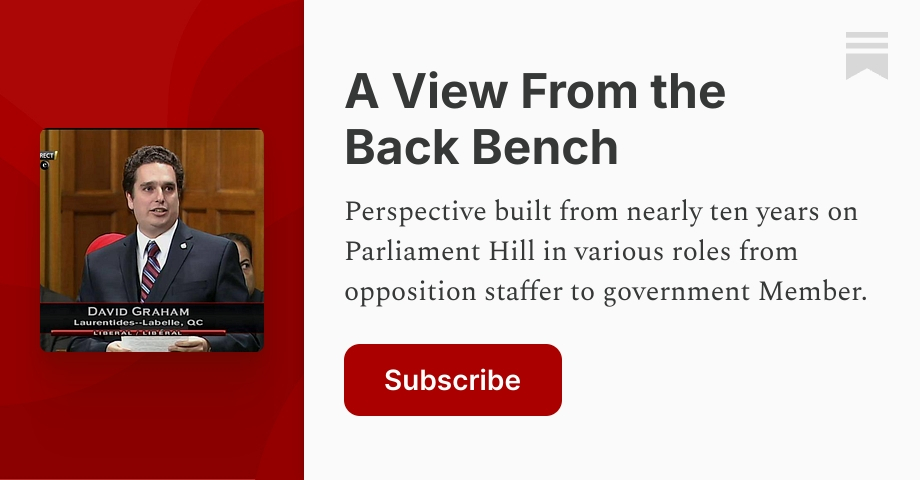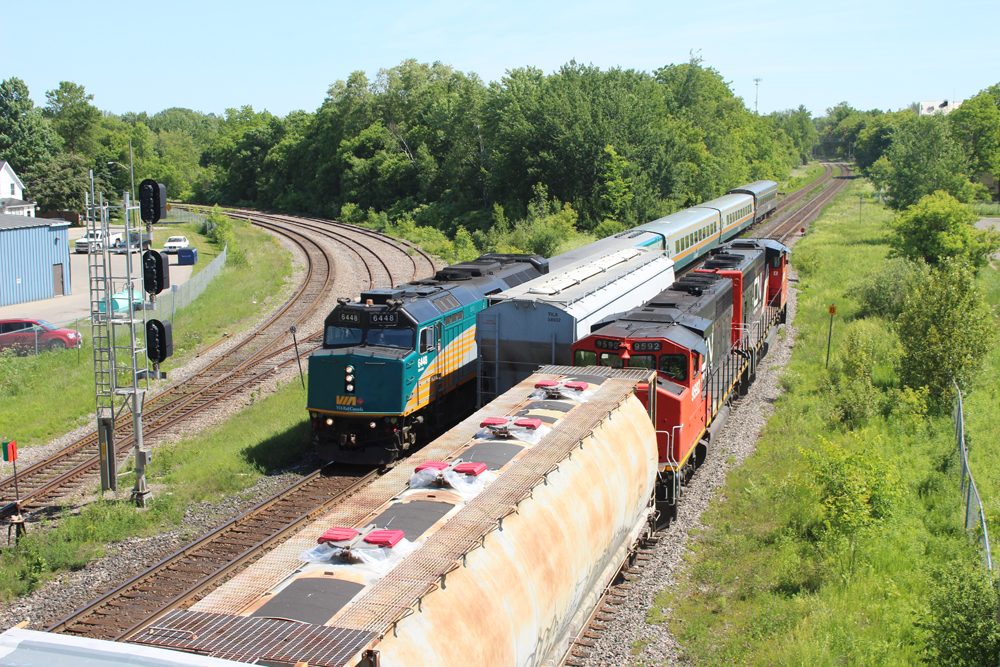lenaitch
Senior Member
A private member's bill from the NDP has success written all over it.
Fair point.A private member's bill from the NDP has success written all over it.
A private member's bill from the NDP has success written all over it.


Let the province and the municipality pay for the installation of CTC and upgrade the track to standard.
On another note.

Bill introduced in Parliament to give VIA trains right of preference - Trains
OTTAWA, Ontario — A member of Canada’s Parliament from British Columbia has introduced a bill to create a right of preference for passenger trains on the nation’s railroads — the lack of which has long hampered VIA Rail Canada operations. Taylor Bachrach, a House of Commons member of the New...www.trains.com
Maybe the law won't get passed but they could come to some sort of gentleman's agreement. At least give better treatment than they are now.I'm honestly not sure this kind of legislation would stand constitutional scrutiny. It's imposing liability on a private corporation in a discriminatory manner after the fact (the feds pocketed all that money from privatization).
But good showmanship for the NDP I guess. They now get to complain how it's the Liberals holding back VIA.
I'm honestly not sure this kind of legislation would stand constitutional scrutiny. It's imposing liability on a private corporation in a discriminatory manner after the fact (the feds pocketed all that money from privatization).
But good showmanship for the NDP I guess. They now get to complain how it's the Liberals holding back VIA.
West of the Ontario Border, Western Alienation is a thing. It is real. Western provinces look at Ontario and Quebec like the rest of Ontario looks at the GTA.They get to the point of wondering why they pay taxes if they don't see anything from it. It gets so bad that the idea of leaving the country (or leaving Ontario) becomes a real discussion. What is annoying is simply brushing it off instead of looking for solutions. Maybe that solution is a national bus service paid for by the federal government. Maybe it is reversal of cuts to Via's routes. Maybe it is a reroute of a line. Point is, there should be an honest discussion within the elected officials about a solution instead of brushing off another concern by citizens of this country that votes and pays taxes.This would be the starting point of a conversation. Still doesn't guarantee that the idea makes sense. What's annoying is that these councillors don't ever realize what they are demanding. Just see any federal agency as a pot of money to abuse, not another level of government with their own mandates.
Perhaps, but the concept of 'negotiation' implies a compromised solution that benefits both (or all) parties. Short of dangling some sort of seriously interventionist legislation (I would argue more that this one proposed), what does the government have that the railways really, really, really want?I do think it's the starting point for a useful conversation (gads, I hate that cliche'd term).
If nothing else, a parliamentary review might put things on the record via committee hearings or other deputations that would shed light on the whole contractual relationship between VIA and freight railways. That in turn may be invaluable for future negotiations that matter more... such as will be required when HFR is launched (remember, without the freight railways, there can be no direct access to central terminals in Quebec City, Montreal, or Toronto).
If I had to put money on it, I would bet that the Liberals will kill this dead.....but.... maybe it helps get the genie out of the bottle. Or kick the first stone down the hillside, starting the avalanche. Or some other equally hated cliche, but you get my point.
- Paul
West of the Ontario Border, Western Alienation is a thing. It is real. Western provinces look at Ontario and Quebec like the rest of Ontario looks at the GTA.They get to the point of wondering why they pay taxes if they don't see anything from it. It gets so bad that the idea of leaving the country (or leaving Ontario) becomes a real discussion. What is annoying is simply brushing it off instead of looking for solutions. Maybe that solution is a national bus service paid for by the federal government. Maybe it is reversal of cuts to Via's routes. Maybe it is a reroute of a line. Point is, there should be an honest discussion within the elected officials about a solution instead of brushing off another concern by citizens of this country that votes and pays taxes.
Is a massive passenger rail network west of Ontario going to stop western alienation? No, but, it could be a small step in the right direction.
I guess you didn't read a thing. That's ok.Trains solving Western alienation. At least now we know you haven't actually talked to any Westerners.
Perhaps, but the concept of 'negotiation' implies a compromised solution that benefits both (or all) parties. Short of dangling some sort of seriously interventionist legislation (I would argue more that this one proposed), what does the government have that the railways really, really, really want?
Court decisions are obviously dependent on the facts of the individual case, but said priority access could end up being very, very, expensive.
I guess you didn't read a thing. That's ok.
Indeed, “the federal government fully paying for more rail service” seems to be to our fantasy bear what donuts are to Homer Simpson:What's up next? Are you going to suggest the feds build more trains to cure cancer? Or maybe if we double frequencies of the Ocean, we can have world peace? Have you ever come across a problem where the federal government fully paying for more rail service didn't solve it?
As someone who lived out west, I did talk to those that lived there. They are pissed off that they work in a sector that brings the government lots of money in taxes that is mainly spent in Ontario and Quebec. If you had read the last line you would have seen that I did say that if that was all the federal government did, nothing would change.I did. And your arguments are ridiculous. "Western alienation" is largely centered around economic grievances, that they largely feel are imposed from the centre. Like equalization, climate policy and regulation of the resources sector. I have not once heard a Westerner say they'd feel less alienated if the feds gifted a bus system or ran the Canadian twice as frequently. Indeed, I suspect they'd actually get offended by such offers and see it as tokenism that avoids their issues. If you had actually talked to any Westerners about Western alienation you'd know this.
Is a massive passenger rail network west of Ontario going to stop western alienation? No, but, it could be a small step in the right direction.




